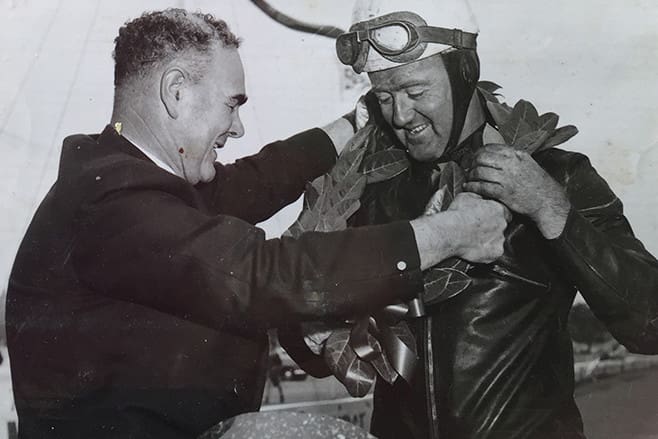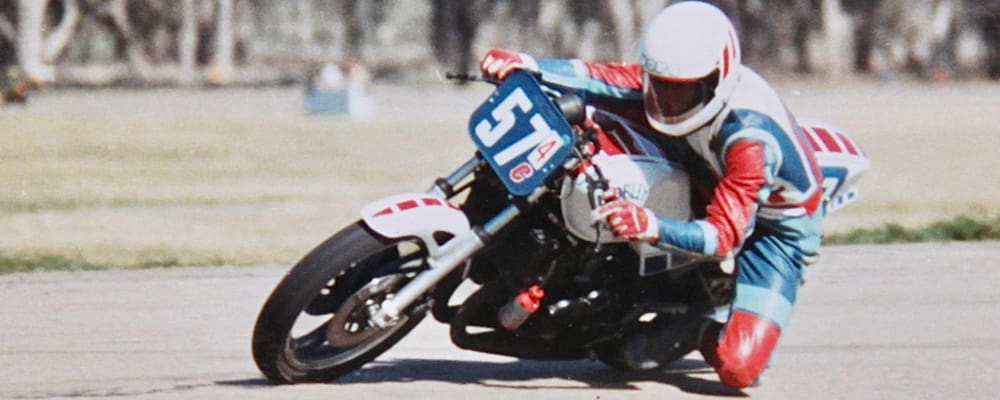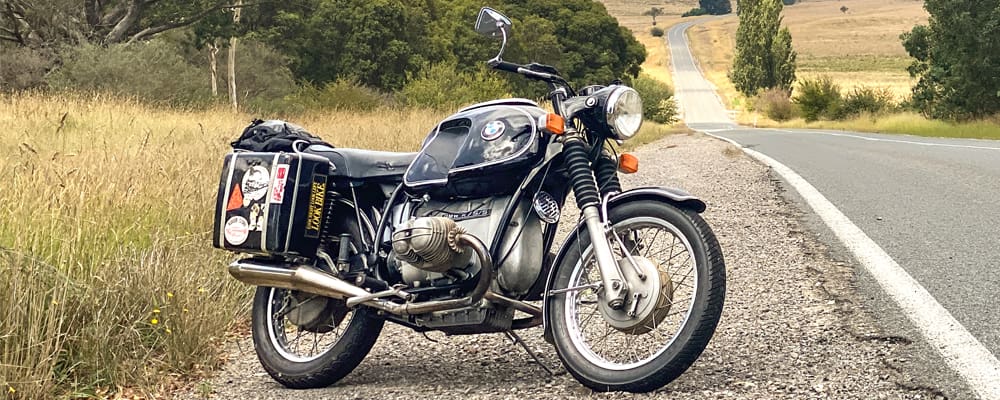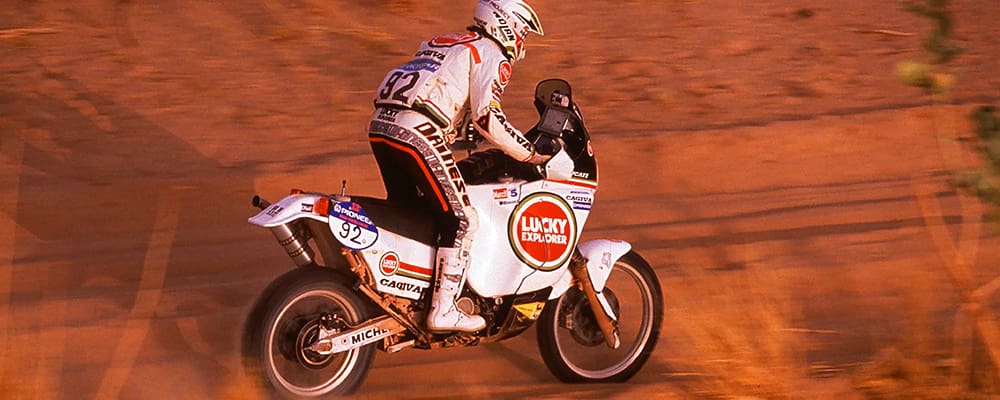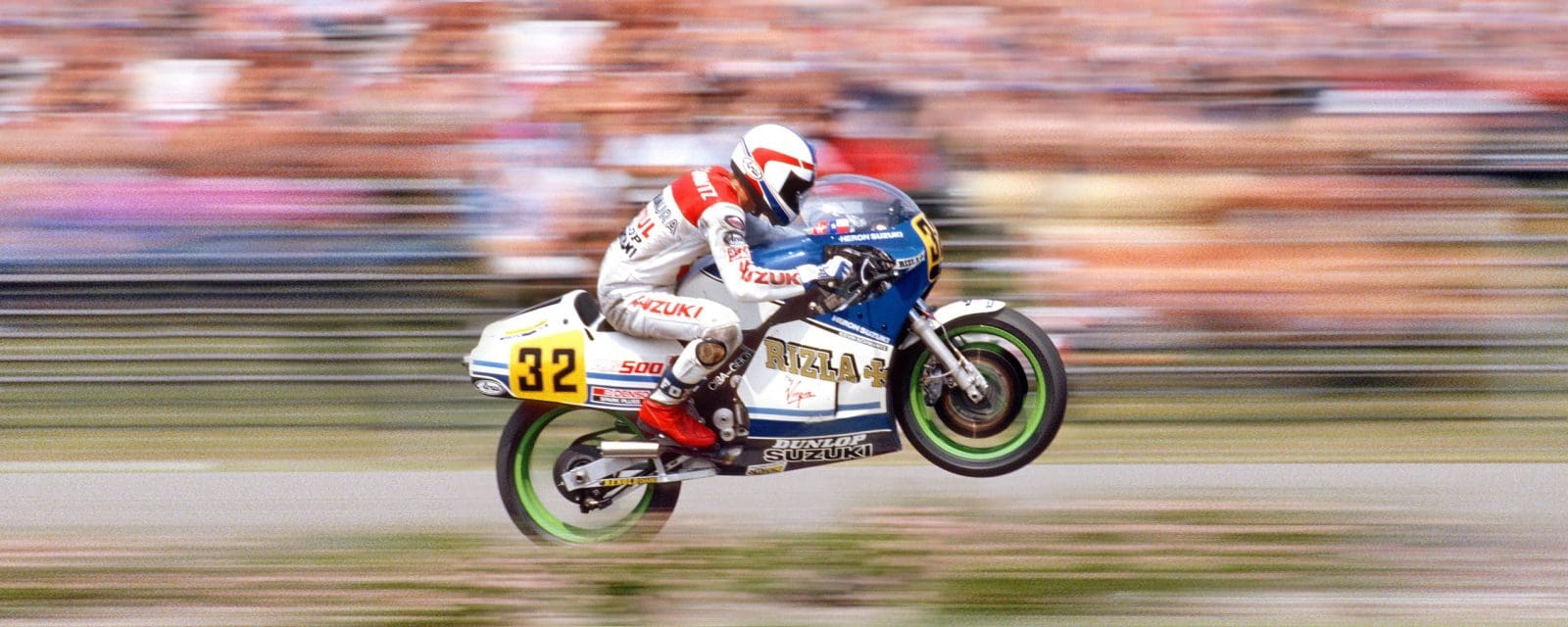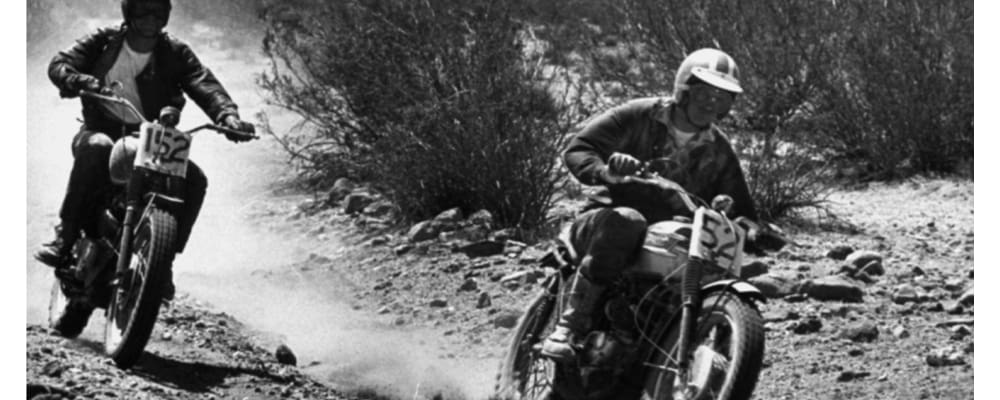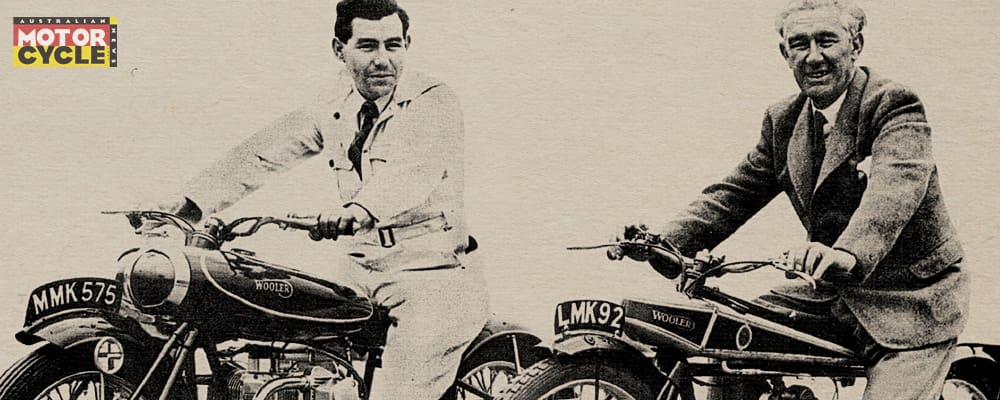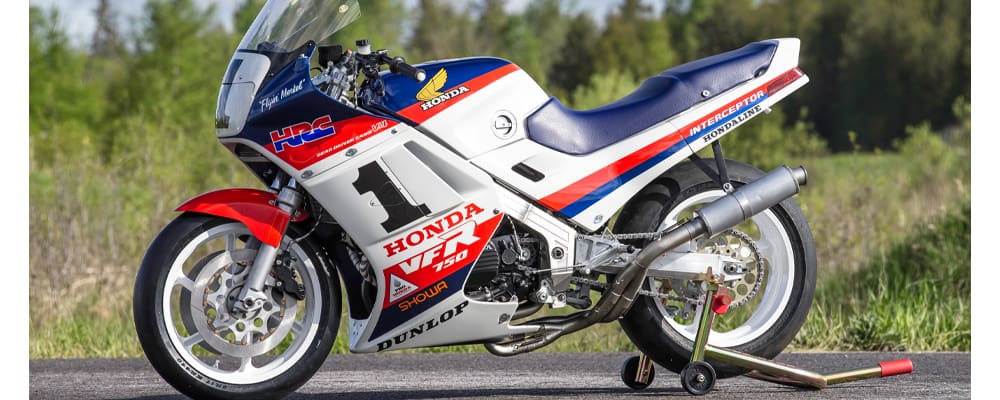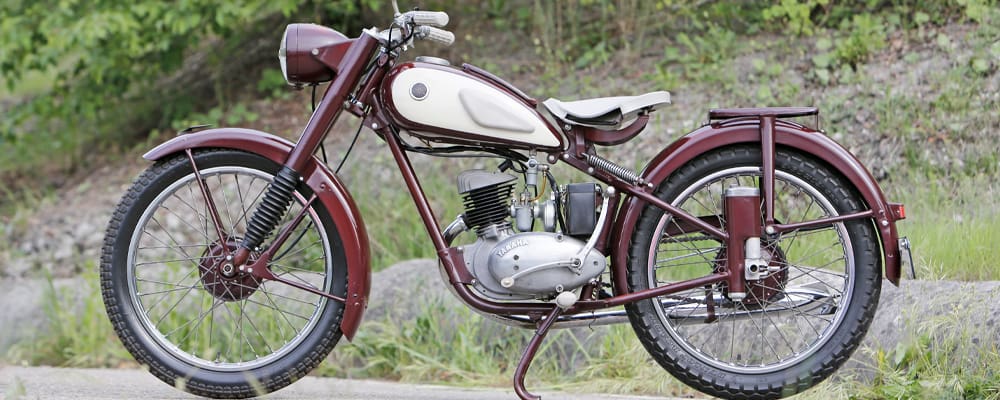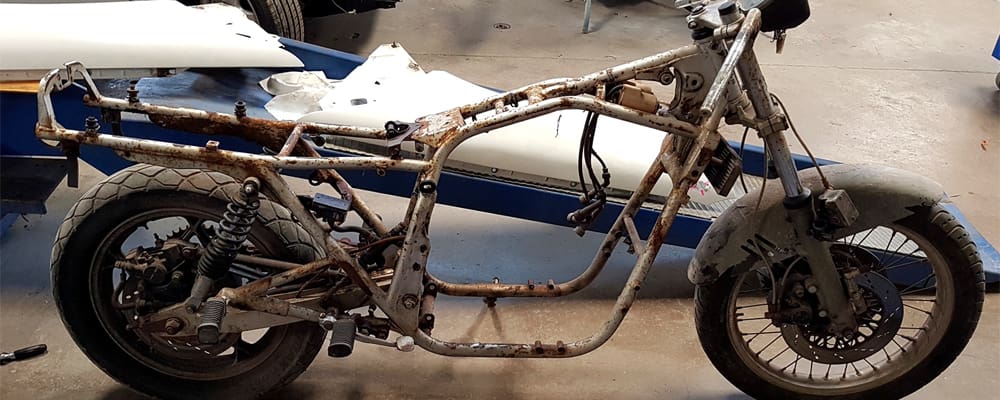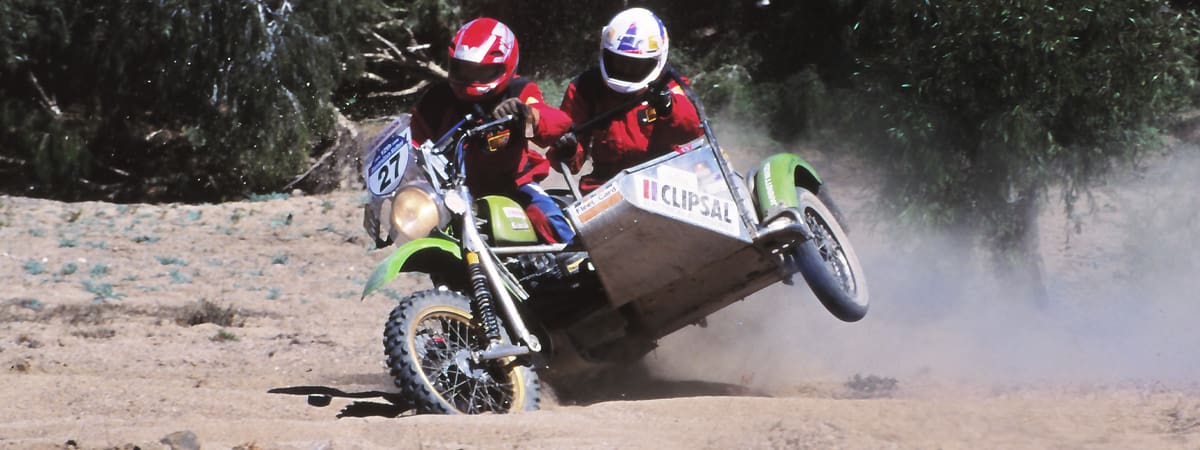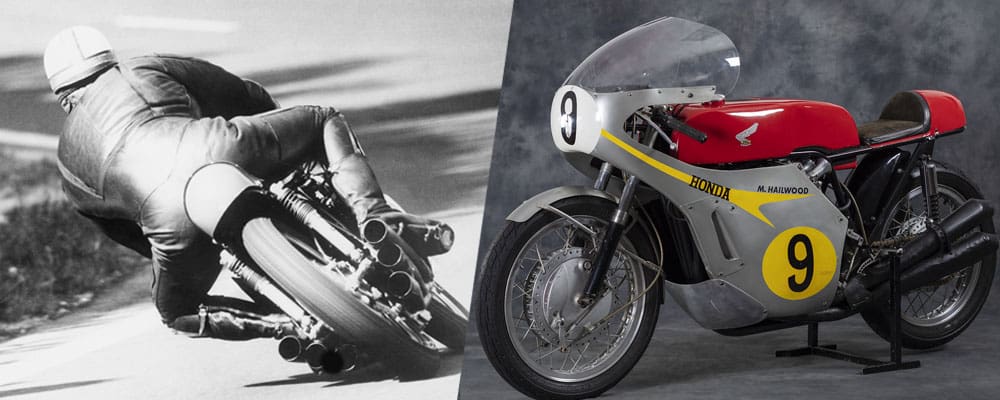1: How the bike got its name
The Manx moniker was given to the racing variant of the firm’s road-going International model. However, there wasn’t any thought or debate that went into the naming of what would eventually become a legendary British race bike. Workers in the brand’s engine assembly would hang tags on the assembled engines for the employees to differentiate between the two; the mill destined for the road would get a tag that said “Inter”, while the racing-spec engines for the same machine were tagged simply with “Manx”.
2: How the frame got its name
The Manx Norton’s legendary Featherbed frame earned its name after British Grand Prix rider Harold Daniell described the bike’s handling as “like a feather bed”. On board his earlier-model Norton, the three-time Isle of Man TT winner held off the-then dominant Stanley Woods to become the first man to lap the Isle of Man TT’s mountain course in under 25 minutes, with a record 91mph average lap in 1938. His record remained unbroken for 12 years until 1950 when a young man named Geoff Duke posted a quicker time.
3: It probably wasn’t as good as many remember
The Manx Norton (in both the long- and short-stroke forms) was undoubtedly the British firm’s most successful race bike. Though Norton’s Grand Prix domination came at a time when a certain Geoff Duke was on board the bike and when Duke made the switch to another manufacturer, Norton’s dominance tapered off significantly. Relatively underpowered compared to rival machinery at the time, it was the Manx Norton’s superb handling which made it such an attractive package for privateers. And why it was such a formidable machine over the punishing 37.73-mile TT mountain course at where the Manx Norton scored 31 victories.
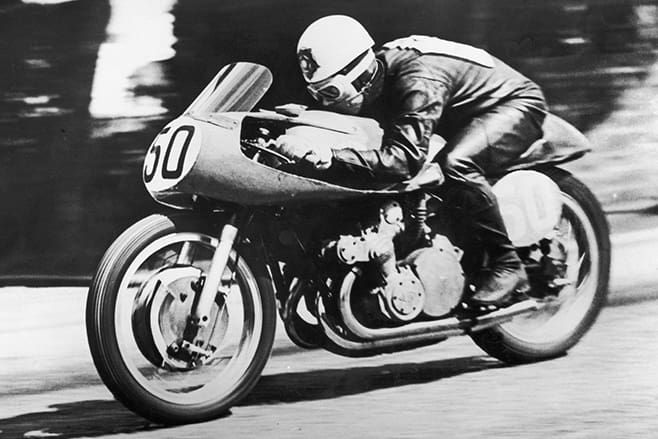
4: Norton’s boss said no to more power
The original long-stroke DOHC 500cc Manx Norton existed between 1937 and 1953. In 1954, Norton replaced the ageing and increasingly less-competitive engine with a more powerful short-stroke version. But by then, the multi-cylinder offerings of the likes of Gilera and Moto Guzzi were beginning to dominate. Road circuits asides, Norton only won four grand prix races after it filled the podium at the 1952 West German Grand Prix. In 1953, Norton boss Joe Craig declined a four-valve Westlake design which offered power increases of up to 12 percent. Geoff Duke’s 1951 500cc world championship was Norton’s last premier-class title.
5: Jack Ahearn and Norton had a beaut relationship
Norton would make bikes available for Aussie rider Jack Ahearn to purchase on the proviso he’d bring them back to Australia after the completion of the season. “I always had two new bikes, so I had a pretty good run,” the 1964 500cc world championship runner-up told Old Bike Australasia, “I’d bring them home to Australia at the end of the year, do a few meetings on them, sell them, then get on the boat and go back and buy two more.”
